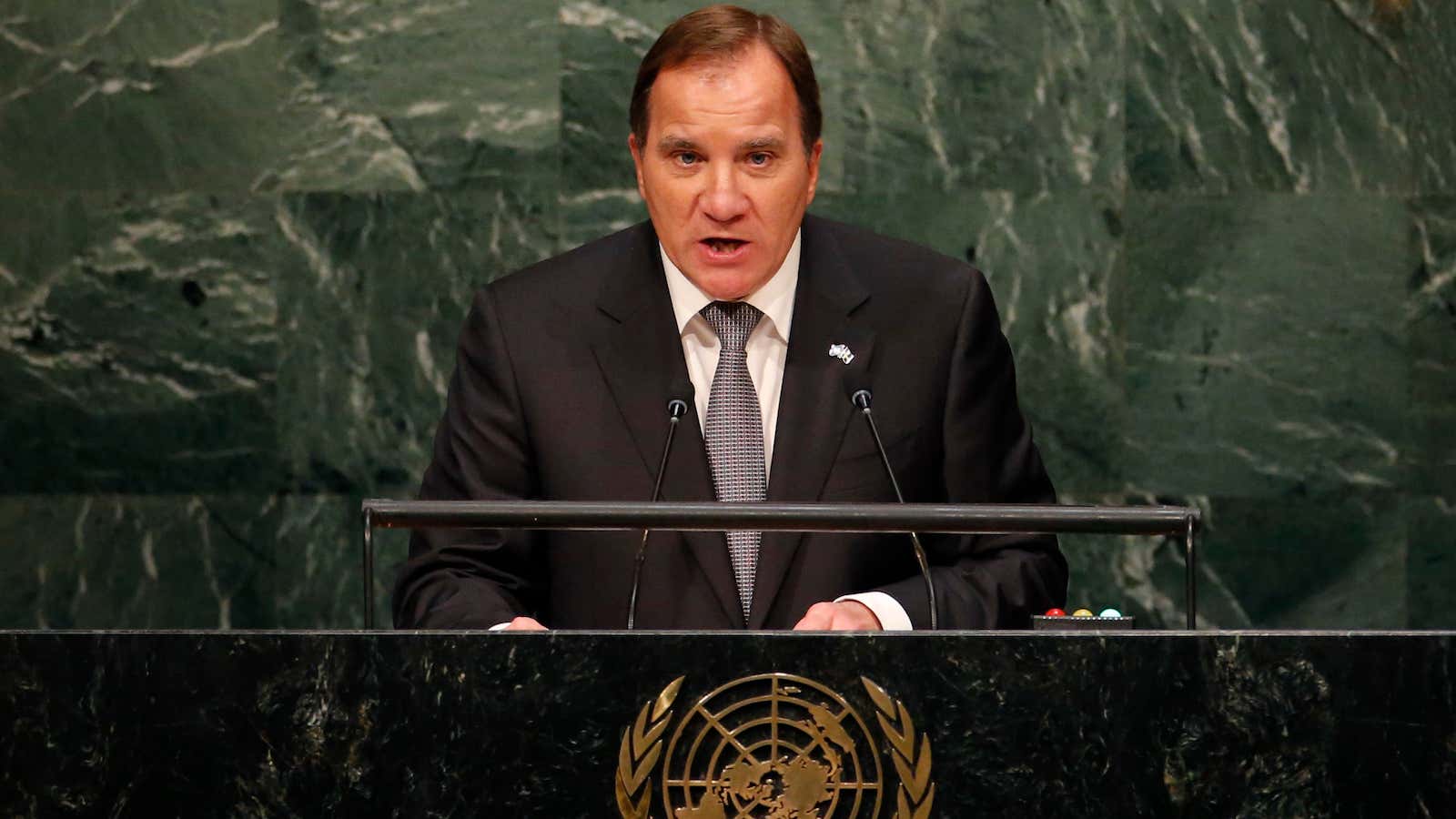Sweden, which has beat even the most enthusiastic Scandinavian countries on efforts to go green, is gunning to go even greener.
In a recent address to the United Nations (UN) General Assembly, Swedish prime minister Stefan Löfven promised to deliver on a previous declaration that Sweden would ”become one of the world’s first fossil-free welfare countries.” Highlighting the necessity of sustainable global development, Löfven insisted: “We are the first generation that can put an end to poverty. And the last that can put an end to climate change.”
The country’s goal is more than ambitious. Thanks to policies decades in the working, alternative energy sources are more abundant in Sweden than many other countries—and yet roughly 50% of its power is still produced by fossil fuels. Löfven has admitted that the goal is lofty, though he’s added that this is the only way for the country to take “moral responsibility” for future generations and lead the international charge toward sustainability.
In order to completely abandon fossil fuels, Sweden needs to overhaul its public systems and convince its private sector to help develop climate-smart innovations.
To that end, the government is investing some 4.5 billion kronor ($550 million) (link in Swedish) next year in a score of climate-geared projects.
Much of that sum will go toward funding energy storage, solar energy, wind energy, and smart grids. The rest will support clean transportation, like electric buses, and the renovation of residential buildings to make them more energy efficient. A portion of the investment will come from ramping up taxes on petrol and diesel fuel.
“When European regulations do not go far enough, Sweden will lead the way,” Löfven said. The country, already light years ahead of the rest of the EU in renewable energy, is also boosting funding for climate-oriented projects in developing countries. Those efforts should earn it some additional boasting rights come December, when the UN meets in Paris to talk about climate change.
